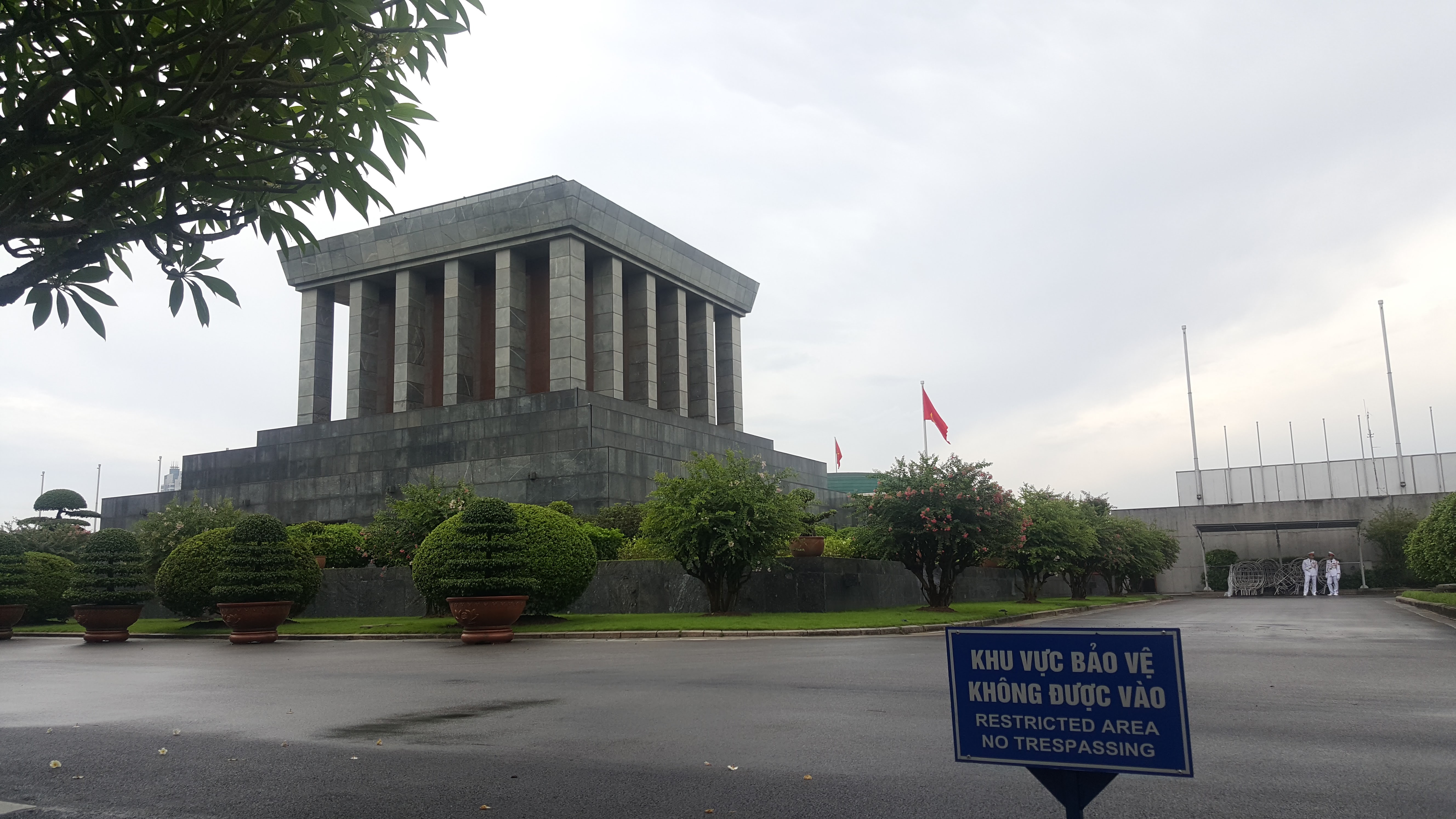Arriving in Hanoi early morning, we were lucky enough to see the awakening of the city. Met by extremely energetic and friendly Vietnamese students, we were escorted to the student accommodation of Hanoi University, where our group was to be based.
The University of Hanoi is based in one location, providing a quick access to the university’s buildings from the student accommodation, making it easy for the students who live there to commute to classes. Only 25 minutes from the Old Town, the location of the University could not have been better as everything we needed was in a walking distance from us.
Coming from a post-Soviet country and living in co-existence with Soviet buildings, infrastructure and heritage, Hanoi with its communist signifiers was an interesting city to observe. However, I did not expect that it would be so easy to find similarities in architecture, plan of the city and people’s behaviour.
One of our first days included a visit to Ho Chi Minh mausoleum. Having to go through security control and form two-lines, guided by armed officers, the experience made me feel restricted in my freedom. Countless guards, rules in place, people around (Vietnamese pioneers) who also had to form two lines all contributed to a feeling of being controlled and having to show sympathy to the former leader of the state. The city is filled with communist posters, creating a contrast between present capitalism and authoritarian rule. It was exceptional to see a branch of Western Union, next to an ancient temple, neighbouring a typical communist poster in the centre of the city.
Talking to Vietnamese students, it was found that they call Ho Chi Minh “Uncle Ho” and illustrate a deep respect and thankfulness to him. For me, it seems to be a product of educational propaganda as this “worship” reminds of the situation that was present among the Soviet population in times of the authoritarian rule, when no signs of disagreement or critique could be ever shown as this could get people into the trouble (e. g. Stalin’s repression of citizens).
Even though, Vietnamese students saw it as a truthful thankfulness for Ho Chi Minh because his actions led to the freedom of Vietnam from French colonial rule.
As for interaction with local students, even during the first days, all students have managed to make friends with each other, creating a unique atmosphere which made our trip even better, leading to a productive cooperation during the lectures and seminars in which we participated.
Even though I had these mixed feelings about of the contrasts of the city that I noticed, it has just increased my interest in exploring the city, culture and the state itself and I cannot wait to discover something new in here.
